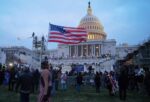Bad Blood-Secrets and Lies in a Silicon Valley Startup
-John Carreyrou This is the full inside story of the breathtaking rise and shocking collapse of Theranos, the multibillion-dollar biotech startup founded by Elizabeth Holmes, by the prize-winning journalist, John Carreyrou, who first broke the story and pursued it to the end, despite pressure from its charismatic CEO and threats by her lawyers. He has won the Pulitzer twice. In 2014, Theranos founder and CEO Elizabeth Holmes was widely seen as the female Steve Jobs: a brilliant Stanford dropout whose startup “unicorn” promised to revolutionise the medical industry with a machine that would make blood testing significantly faster and easier. Backed by investors such as Larry Ellison and Tim Draper, Theranos sold shares in a fundraising round that valued the company at more than $9 billion, putting Holmes’s worth at an estimated $4.7 billion. There was just one problem: The technology didn’t work. In Bad Blood, John Carreyrou tells the riveting story of the biggest corporate fraud since Enron, a tale of ambition and hubris set amid the bold promises of Silicon Valley.










